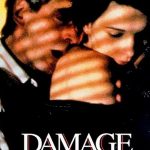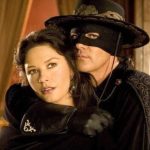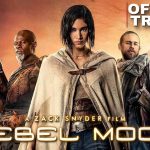“Django Unchained” (2012) – Review

Director: Quentin Tarantino
Starring: Jamie Foxx, Christoph Waltz, Leonardo DiCaprio, Kerry Washington
Genre: Western, Action, Drama
Release Date: December 25, 2012
A Bold Vision of Freedom and Revenge
Quentin Tarantino’s Django Unchained is a visually stunning and thematically rich film that redefines the Western genre. Released in 2012, the film takes audiences on a gripping journey through the American South, blending historical context with Tarantino’s signature style of storytelling, dialogue, and violence.
The Story
Set in the pre-Civil War era, Django Unchained follows the story of Django (Jamie Foxx), a former slave on a quest for freedom and vengeance. After being freed by Dr. King Schultz (Christoph Waltz), a German bounty hunter, Django becomes Schultz’s partner in tracking down the infamous Brittle brothers. As they work together, Django seeks to rescue his wife, Broomhilda (Kerry Washington), who is still enslaved on a plantation owned by the ruthless Calvin Candie (Leonardo DiCaprio).
The film masterfully interweaves themes of liberation, justice, and revenge, as Django transforms from a passive victim into an empowered hero determined to reclaim his life and his love.
Powerful Performances
The cast of Django Unchained delivers exceptional performances that elevate the film’s narrative. Jamie Foxx embodies Django with a blend of intensity and vulnerability, showcasing his evolution from a frightened slave to a formidable bounty hunter. Christoph Waltz shines as the charming yet principled Dr. Schultz, providing a moral compass for Django as they navigate a world filled with brutality and corruption.
Leonardo DiCaprio’s portrayal of Calvin Candie is nothing short of chilling. His charismatic yet sinister performance brings a level of complexity to the character, making him one of Tarantino’s most memorable villains. Kerry Washington also delivers a poignant performance as Broomhilda, representing the pain and suffering of countless individuals impacted by slavery.

Tarantino’s Signature Style
Django Unchained is unmistakably a Tarantino film, marked by his unique storytelling techniques. The screenplay is filled with sharp dialogue, dark humor, and unexpected plot twists that keep audiences engaged. Tarantino’s choice of music, blending contemporary tracks with classic Western motifs, enhances the film’s atmosphere and emotional weight.
The film’s visual style is equally impressive, with striking cinematography that captures the stark beauty of the Southern landscape, contrasted with the harsh realities of slavery. The action sequences are meticulously choreographed, showcasing Tarantino’s flair for stylized violence that is both shocking and compelling.
Themes and Social Commentary
At its core, Django Unchained is a commentary on race, identity, and the legacy of slavery in America. The film confronts the brutal realities of this dark chapter in history while simultaneously empowering its protagonist to challenge the system. Django’s journey is not just one of personal vengeance; it reflects a broader struggle for freedom and dignity.
Tarantino’s approach to the subject matter has sparked discussions about the portrayal of race and violence in film, as well as the ethical implications of using historical atrocities as a backdrop for entertainment. While some criticize the film for its graphic depictions, others commend it for its boldness and willingness to tackle uncomfortable truths.
Conclusion
Django Unchained is a cinematic triumph that blends action, drama, and social commentary in a way that only Quentin Tarantino can achieve. With powerful performances, a compelling narrative, and striking visuals, the film stands as a significant contribution to the Western genre and modern cinema. It challenges viewers to reflect on the past while delivering a thrilling and entertaining experience.
As Django fights for his freedom and the love of his life, audiences are reminded of the enduring spirit of resilience and the fight against oppression. Django Unchained is not just a film; it is a powerful exploration of what it means to be truly free.
Suggested videos for you:
[Movie Review] The Darkest Minds 2018
[Movie Review] Extraction (2020)











